CLEVELAND — Chairperson Robert Primus and Vice Chairperson Karen Hedlund of the Surface Transportation Board opened the second day of the SMART-TD National Training Seminar on Wednesday, July 10. They outlined the vital role labor organizations like SMART-TD play in overseeing the freight rail and bus industries.
Both officials took part in the board hearings under now-retired STB Chair Martin Oberman, where they confronted the nation’s railroads for their part in the post-lockdown supply chain meltdown.
“We’ve never had a board that has gone to battle for what the workers and shippers were going through like that board did,” SMART-TD union President Jeremy Ferguson said.
Primus: Labor brings critical issues into the light
STB Chairman Robert Primus shared that a void was filled by SMART Transportation Division leadership. Prior to 2021, rail labor did not have a voice with the STB committees overseeing freight and passenger rail.
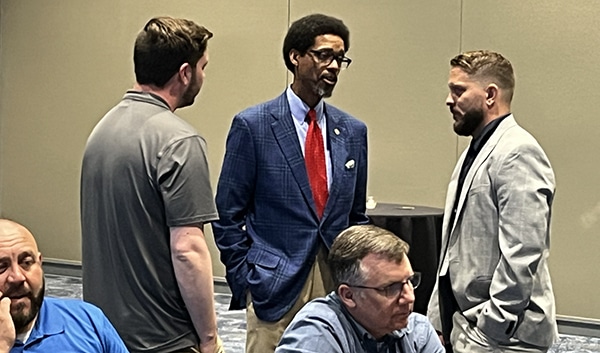
“We really didn’t hear from labor, and that’s a shame because I think that’s one of the reasons why we are where we are today,” Primus said. “But those things changed. Marty Oberman did something crazy right around 2021… saying let’s bring the folks who run the railroads into the room with us.”
That opportunity allowed the priorities of rail labor to be heard, amplified and to give regulators a clear picture of the situation on the ground. Organizations like SMART-TD brough service issues, massive layoffs, and quality-of-life issues including draconian attendance policies and the lack of paid sick leave to light, Primus said.
“All the corporate types, they all started waking up, and we were able to really start to move the needle on some of these issues,” he said. “What Marty started has brought a powerful partnership between STB and labor. The result is, we’re stronger moving forward. That’s the big thing.
“All the things that they were doing in the dark were brought into the light. The good news is we’re going to be going forward together.”
SMART-TD railroad and transit union leaders sit on STB committees
Two of our leaders, SMART-TD Illinois State Legislative Director Bob Guy and President Ferguson, now sit on the STB advisory committees that oversee passenger and freight rail, respectively.
“For me, that’s important. You’re part of the equation. You’re part of the solution,” he said.
Primus also acknowledged the role unions had in helping him succeed Oberman.
“Labor stepped up first before anybody else,” Primus said. “I wouldn’t be here without the support of you in this room. I want to say thank you for letting me represent you.
“We’ll make people realize that the people who run the railroad are in the room right now.”
Hedlund: STB can help initiate rail growth
STB Vice Chairperson Karen Hedlund then recounted some of the work done during Oberman’s tenure and some things that may come regarding rail service.
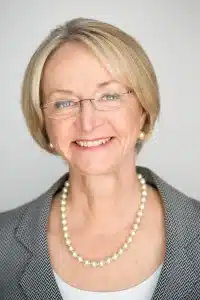
She’s familiar with our union, crossing paths earlier in her career with former FRA Administrator Joe Szabo, a TD Alumni member and former Illinois State Legislative Director.
She began by tamping down concerns about the recent Supreme Court ruling overturning the Chevron decision, which is feared to weaken federal oversight of private industry.
“I don’t think it means that the courts are necessarily going to be second-guessing everything,” Hedlund said. “They first have to find some ambiguity in the statute. Our statutes are pretty clear. There are some things that could use a little bit more elaboration, but if your statutes are clear and your precedents are clear, hopefully you can get through that.”
Another point she made was that the railroads, already a critical and efficient part of our infrastructure, need to expand. Only 30 percent of goods are transported by rail, she said.
“They have failed to grow their carloads over the past 20 years,” Hedlund said. “Over the last two decades, all rail transportation sectors except intermodal have shown significant negative growth.”
The latest forecast by the Bureau of Transportation Statistics says that rail’s market share is forecast to shrink compared with trucking in the future.
STB can potentially prevent railroads from doing less with less via the common-carrier obligation, while supporting competition and abiding by STB’s reciprocal switching ruling.
The Staggers Act, passed in the early 1980s, ushered in an era of consolidation in the rail industry. This led to the current duopolistic structure of Class I railroads — only two in the east, two in the west and two running north-south — that restricts competition.
“Maybe it’s time for the statutory pendulum to swing the other way,” she said. “We have to start this conversation about what we need to find things to strengthen us to help the railroads and to help the employees. To help the economy and to help the environment. And we’re going to look to our advisory committees to work on that.”

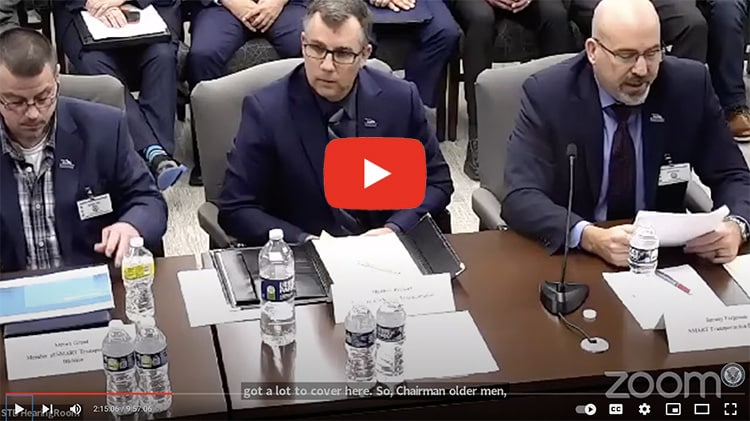
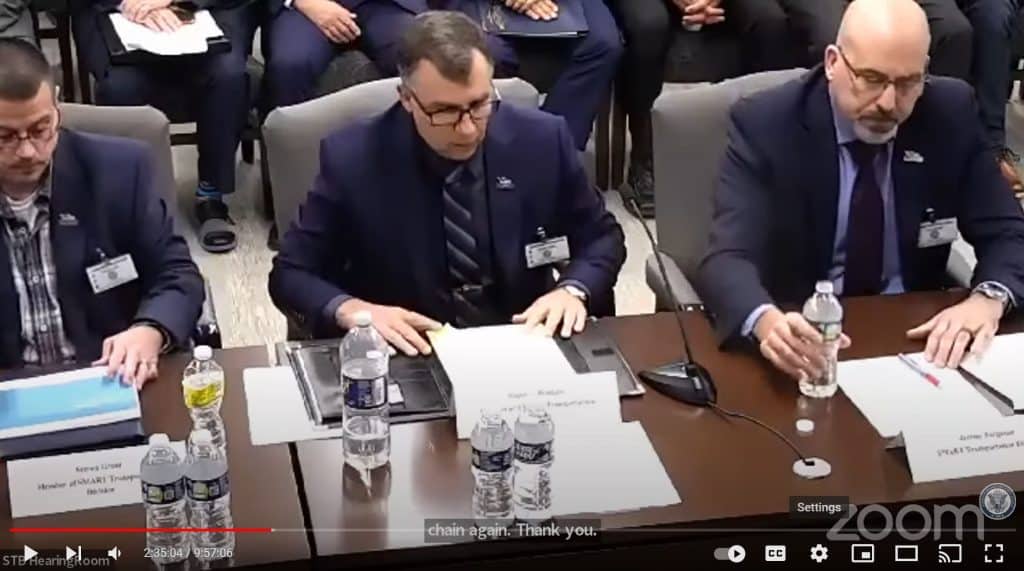
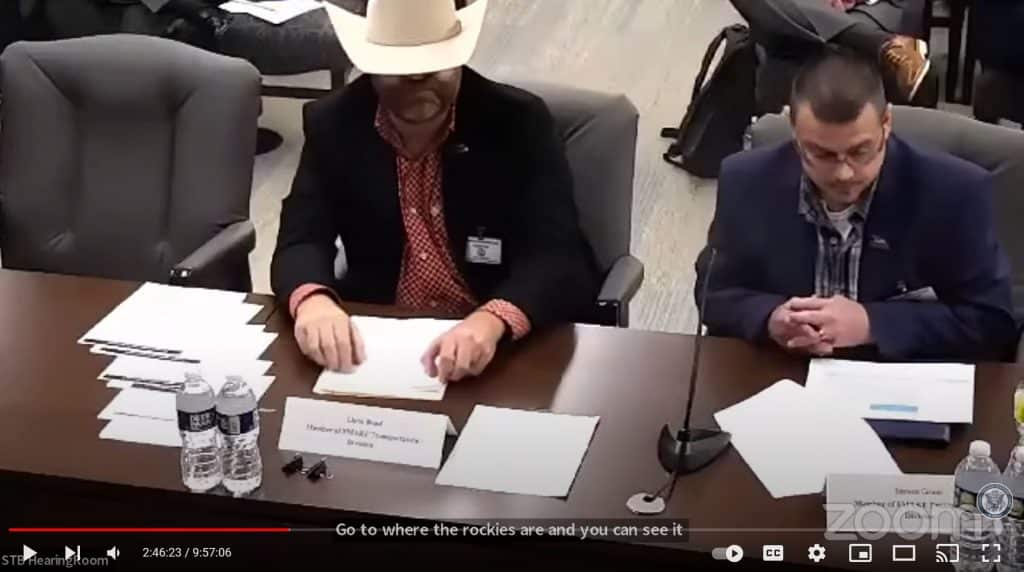
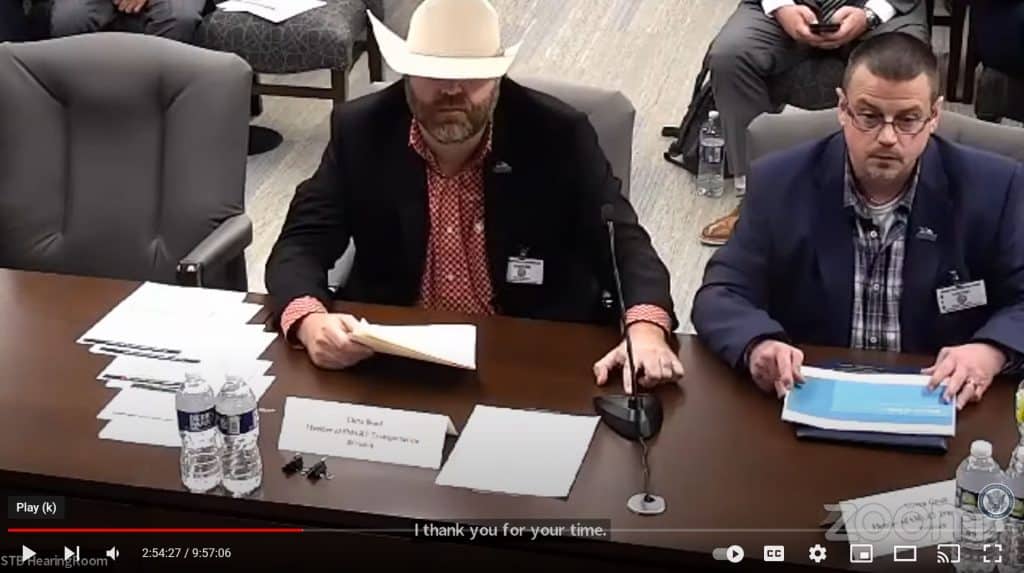
 WASHINGTON – Amtrak is taking action to improve the on-time performance (OTP) of its trains that operate over tracks controlled by other railroads. In a complaint filed on Nov. 17, Amtrak is asking the Surface Transportation Board (STB) to investigate Norfolk Southern Railway and CSX Transportation for causing unacceptable delays for passengers traveling between Chicago and Washington, D.C., on the Capitol Limited service.
WASHINGTON – Amtrak is taking action to improve the on-time performance (OTP) of its trains that operate over tracks controlled by other railroads. In a complaint filed on Nov. 17, Amtrak is asking the Surface Transportation Board (STB) to investigate Norfolk Southern Railway and CSX Transportation for causing unacceptable delays for passengers traveling between Chicago and Washington, D.C., on the Capitol Limited service.